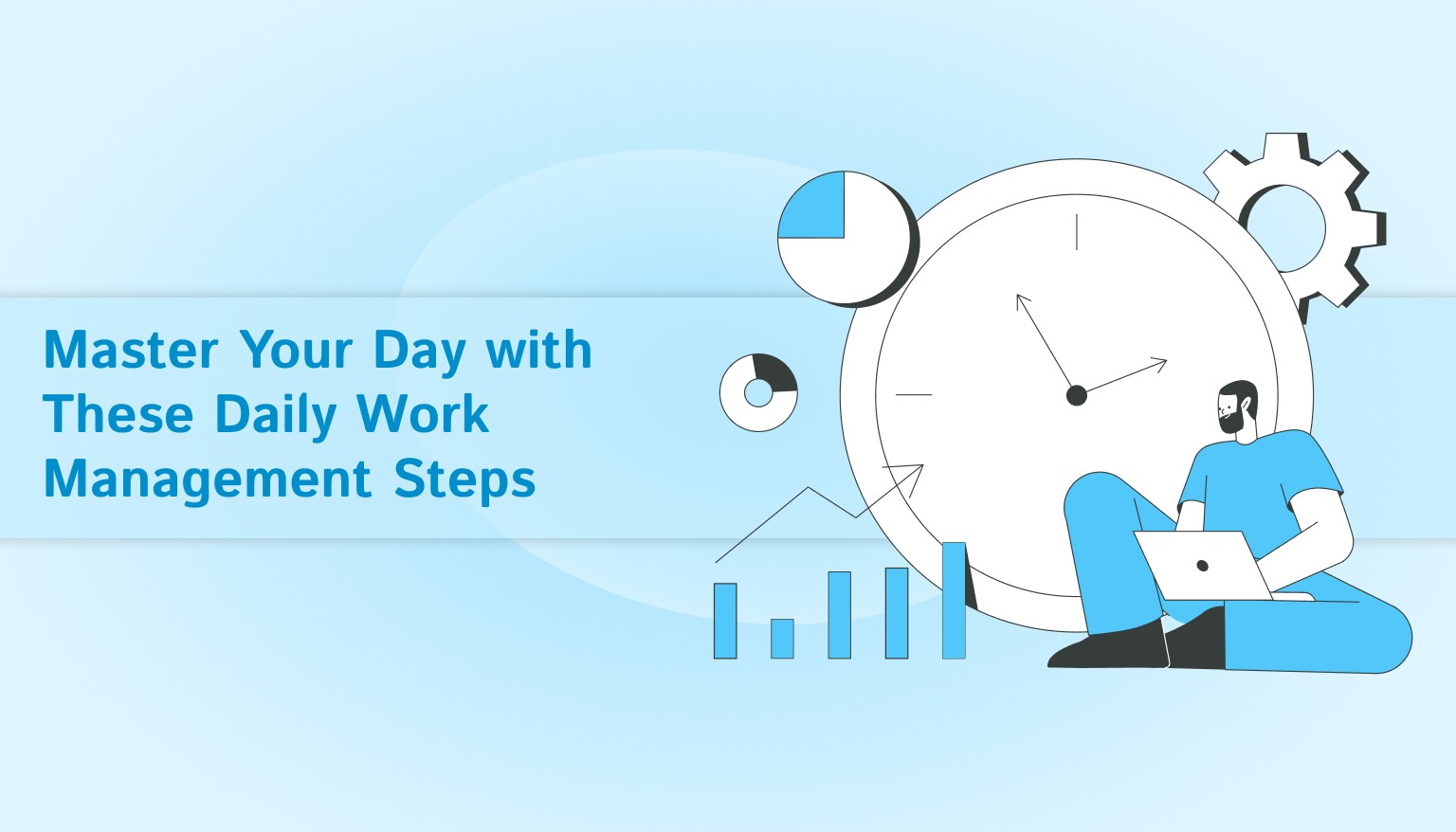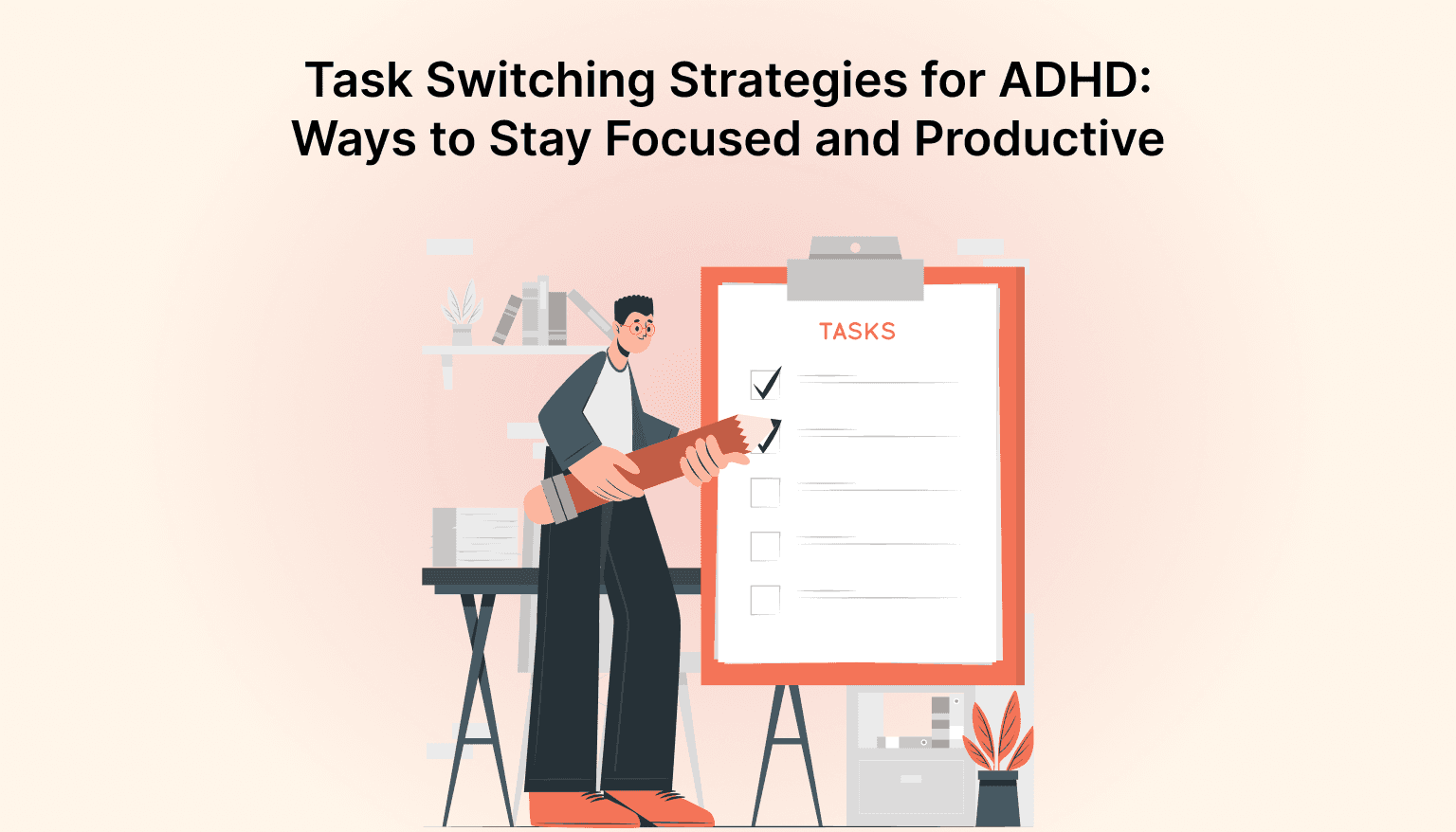How to Complete a Task on Time?
7
Have you ever missed a deadline because tasks piled up or priorities shifted?
Tasks drag on, stress grows, and productivity drops without a plan. A survey states that 61% of workers say they are productive, but at the cost of well-being. Moreover, 80% employees experience productivity anxiety, with over one-third facing it multiple times a week.
Knowing how to complete a task on time is not just about meeting deadlines; it is about working with clarity and balance.
In this guide, you will learn what causes delays, strong methods to finish tasks on schedule, and how to build habits that keep you on schedule.
Key Takeaways:
Prioritizing tasks reduces stress, boosts focus, and ensures deadlines are consistently met.
Poor planning, distractions, and procrastination are the main causes of delayed tasks.
Breaking tasks into smaller steps and using time-blocking improves efficiency and task completion.
Techniques like the Two-Minute Rule, buffer time, and daily reviews maintain steady progress.
Tools that centralize tasks, schedule smartly, and provide AI guidance make completing tasks on time easier.
Why Completing Tasks on Time Matters?

Finishing tasks on time is not just a good habit; it builds trust and reduces stress. You also protect your work-life balance and avoid last-minute chaos, which helps you reach your goals.
Here are 5 key reasons why completing tasks on time benefits both your performance and well-being:
Builds reliability: Meeting deadlines shows responsibility. Colleagues and managers can depend on you, which strengthens teamwork and improves your professional reputation.
Reduces stress: By working ahead, you can sidestep last-minute pressure. As you notice steady progress, you may also find unfinished work is less likely to trigger anxiety.
Improves productivity: When you finish tasks as planned, you make space for other priorities and prevent a buildup of work.
Recommended Reading: 10 ways to improve work efficiency and productivity
Supports long-term goals: Completing tasks on time ensures your smaller accomplishments contribute steadily toward your larger goals.
Encourages better balance: Consistently working on time helps you draw the line between work and personal life, so your free time stays truly yours.
Understanding these benefits is important, but it's also helpful to recognize what can prevent timely completion. What challenges often cause delays? Let's look at some of the common barriers.
5 Common Reasons Tasks Get Delayed
Deadlines often slip because hidden forces slow progress. Small habits or unclear expectations delay more than you think. These delays affect quality and morale. Recognizing what causes them helps answer how to complete a task on time.
Here are 5 clear reasons for how they delay work:
Poor planning: When you start a task without clear goals or a timeline, work drifts. You waste time deciding what to do next instead of making progress.
Constant distractions: Interruptions from phones, messages, or multitasking pull you away from focus. Each break costs time and adds mental effort to refocus.
Overestimating capacity: You say yes to too much, leaving no buffer for delays. When tasks collide or run long, deadlines slip.
Lack of clarity: Unclear goals or vague instructions force guesswork. That adds rework, delays, and lowers final quality.
Procrastination: Putting off tasks until pressure builds causes rush, errors, and late finishes. Studies show that around 20-25% of adults are chronic procrastinators, which increases delay risk.
Delays arise from poor planning, unclear goals, and avoidance of discomfort. Addressing these issues is essential to timely task completion. Now, let’s discuss some strategies to overcome poor planning and complete tasks on time.
How to Complete a Task on Time: Practical Strategies and Techniques

Knowing how to complete a task on time is essential for efficiency, reducing stress, and maintaining control over your workload. Timely execution is not just about meeting deadlines; it ensures quality, protects personal time, and supports consistent progress toward goals. Applying structured strategies helps you work smarter and finish tasks reliably.
Here are a few practical ways to complete tasks efficiently:
1. Set Clear Deadlines
Defining realistic deadlines gives you a concrete target and a sense of urgency. Open-ended tasks often delay because there’s no pressure to finish. Clear deadlines help break procrastination cycles and provide a measurable endpoint.
Implementation: Assign specific due dates, log them in a calendar, and treat them as non-negotiable. Check progress periodically to ensure you’re on track.
2. Break Tasks into Smaller Steps
Large tasks feel disturbing and can hold progress. Dividing work into smaller, actionable steps makes each part easier to tackle, reduces mental fatigue, and gives a sense of accomplishment as each step is completed.
Implementation: List all subtasks, prioritize them logically, and mark off completion as you go. It creates momentum and makes long projects manageable.
Related Article: How to Effectively Deal With Burnout
3. Use Time Blocking for Execution
Time blocking ensures focused work periods rather than scattered attention. Simply planning tasks is not enough; dedicated time slots protect your schedule from distractions and guarantee progress.
Implementation: Allocate uninterrupted blocks for each task in your calendar, minimize interruptions, and dedicate periods for high-concentration work. Review blocks weekly and adjust for realistic timing.
4. Apply the Two-Minute Rule
Small tasks often pile up and create mental clutter. Handling any action that takes under two minutes immediately prevents backlog and keeps momentum consistent.
Implementation: Quickly respond to brief emails, minor updates, or simple actions as they arise. Completing these small items immediately prevents them from interrupting focus later.
5. Limit Multitasking
Switching between tasks decreases focus, increases errors, and slows completion. Concentrating on a single task at a time accelerates output and ensures higher quality.
Implementation: Turn off unrelated notifications, close unused apps, and commit to completing one task fully before starting the next. Use focus timers to maintain attention on each task.
6. Use Buffer Time
Unexpected delays are inevitable. Without built-in buffer time, a minor setback can cascade into missed deadlines. Adding small gaps between tasks ensures flexibility and reduces pressure.
Implementation: Schedule 10–20 minute breaks between tasks, plan contingency for high-risk activities, and review the day for necessary adjustments. It keeps your workflow realistic and adaptable.
7. Review and Adjust Daily
Consistent evaluation keeps you aligned with priorities. Reviewing progress identifies huddles, helps redistribute time, and ensures important tasks aren’t overlooked.
Implementation: At day’s end, assess completed work, update pending tasks, reprioritize based on urgency, and adjust the next day’s plan. Regular reflection improves efficiency and timing over the long term.
Must Read: Boost Your Productivity with a Smart Weekly Task List
Following these strategies allows you to manage tasks efficiently, maintain focus, and ensure on-time completion. By applying them consistently, you develop habits that make timely execution second nature. Next, let’s see how platforms like Akiflow can support these techniques and make task management even easier.
How Akiflow Helps You Complete Tasks on Time?

Akiflow is a productivity platform that centralizes your tasks, meetings, and reminders in one dashboard. Instead of juggling multiple apps and losing track of deadlines, it organizes your workflow and ensures tasks are completed on schedule. It makes it easier to focus on priorities and finish work efficiently.
Here’s how Akiflow supports timely task completion:
Unified Task Hub: Connect Slack, Gmail, Notion, Zoom, Trello, and other tools to manage everything from one place.
Smart Time Planning: Drag tasks onto your calendar, create smart deep-work time slots, adjust schedules if plans change, and lock protected hours.
Simplified Meeting Management: Share availability with teammates or external contacts, let them pick a time, auto-add conferencing links, and control privacy settings for events.
Organized Weekly Workflow: Turn task lists into schedules, repeat recurring tasks automatically, and color-code your week for clarity.
AI-Powered Assistance: Instantly assign tasks to projects and get smart next-action suggestions. Simplify administration and stay focused on priorities.
With these features, Akiflow helps you cut through distractions, stay organized, and reliably complete tasks. Take control of your schedule today, start using Akiflow and make every task count.
Conclusion
Completing tasks on time starts with effective prioritization. Without it, poor planning, distractions, and procrastination create stress and missed deadlines. When done right, timely task completion improves productivity, focus, and work-life balance.
Using strategies like setting clear deadlines, breaking tasks into smaller steps, and time blocking helps you stay on track. Regular review and smart use of buffers further ensure tasks are finished efficiently.
Tools like Akiflow make these strategies easier by organizing your workflow, protecting focus time, and offering AI-assisted guidance.
Take charge of your workflow and finish tasks on time with ease. Start your free Akiflow trial today and turn your schedule into a stress-free, productive system.
Frequently Asked Questions
1. Why is task prioritization important?
Prioritizing tasks ensures that you focus on what matters most, reducing stress and enhancing productivity. By distinguishing between urgent and important tasks, you can allocate your time effectively, leading to better decision-making and more efficient use of resources.
2. What are the benefits of setting SMART goals?
SMART goals are Specific, Measurable, Achievable, Relevant, and Time-bound. Setting goals this way clarifies priorities, tracks progress, and increases motivation. It helps break large projects into manageable steps, ensuring timely completion and better focus on high-impact tasks.
3. How does multitasking affect productivity?
Multitasking can reduce efficiency and increase errors. Focusing on one task at a time allows for deeper concentration and higher-quality work. It's more effective to complete tasks sequentially than to divide attention among multiple activities, leading to better outcomes and less stress.
4. What is time blocking, and how does it help?
Time blocking involves scheduling specific blocks of time for each task or activity. This technique reduces distractions, ensures dedicated focus periods, and improves the likelihood of completing tasks on time. It also helps visualize the day, prioritize work, and maintain consistent productivity.
5. How can I avoid procrastination?
To combat procrastination, break tasks into smaller, manageable steps, set clear deadlines, and eliminate distractions. Recognizing and addressing underlying causes, such as fear of failure or perfectionism, can also help in taking timely action and maintaining consistent progress.




